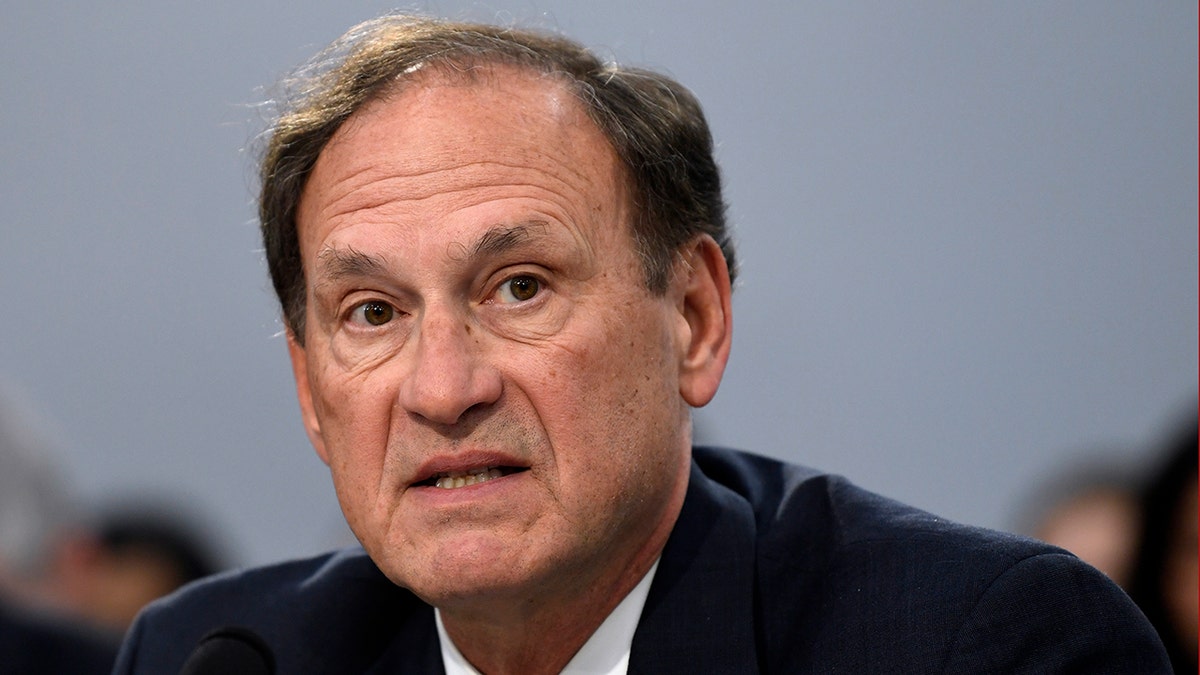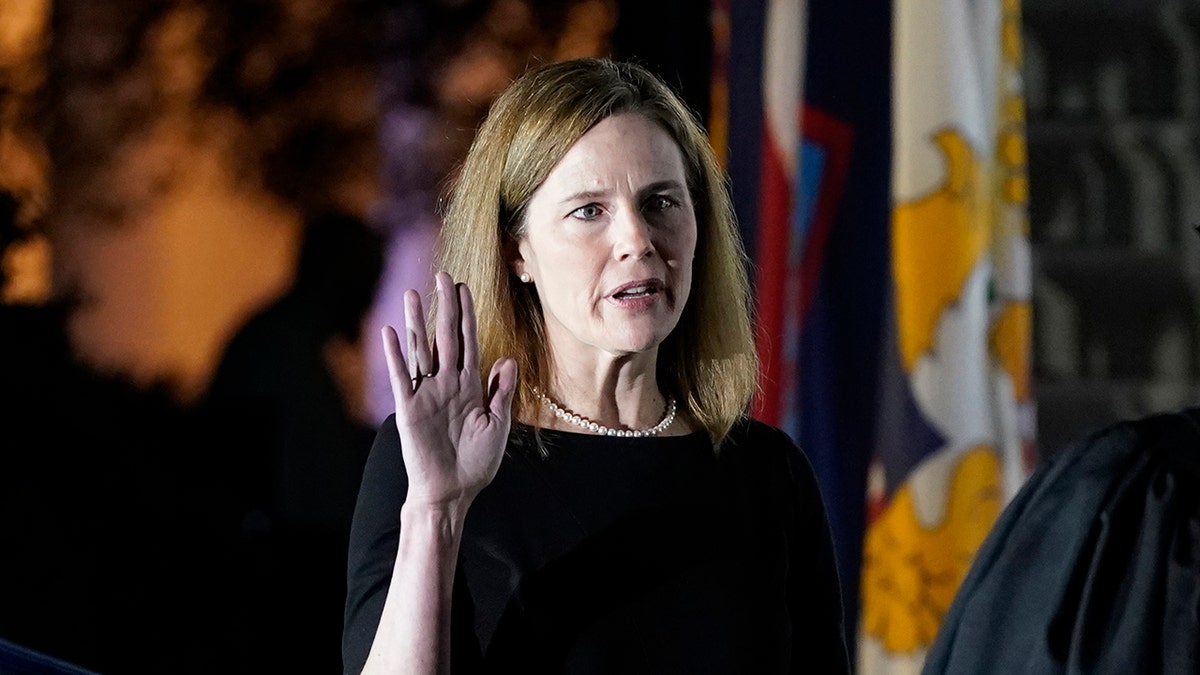How Justice Barrett’s confirmation will impact the Supreme Court
Barrett gives conservatives a 6-3 majority, as Biden remains coy on court-packing; David Spunt reports.
After newly minted Justice Amy Coney Barrett eased into her new job last week with a handful of low-profile cases, the Supreme Court on Wednesday heard its first oral arguments on a hot-button issue since Trump's third appointee joined the bench.
The justices on Wednesday considered Fulton v. City of Philadelphia, a case about whether Philadelphia can exclude a Catholic group from participating in its foster program because it refuses to certify same-sex couples to be foster parents. The dispute followed the city's decision to stop referring cases to the group, Catholic Social Services (CSS) and its later non-renewal of CSS' contract with the city.
Justice Samuel Alito took a highly suspicious view of the city's stance that it may refuse to let CSS participate in certifying foster families in what it said is a neutral application of its nondiscrimination policies. He accused the city of not being able to abide by the fact CSS advocates a traditional view of marriage.
Barrett also appeared somewhat suspicious of the city's position but was much more measured in her questions than Alito.

In this March 7, 2019, file photo, Supreme Court Justice Samuel Alito testifies before House Appropriations Committee on Capitol Hill in Washington. Alito Wednesday appeared highly suspicious of the arguments on behalf of Philadelphia in Fulton v. City of Philadelphia (AP Photo/Susan Walsh, File)
PELOSI LABELS BARRETT 'AN ILLEGITIMATE SUPREME COURT JUSTICE'
She questioned a lawyer who was arguing in favor of CSS about "the relevant factor in deciding whether a law is generally applicable," saying some comparisons CSS made to the same-sex anti-discrimination rules weren't "apples to apples."
She also asked another lawyer who was backing CSS: "What if there was an agency who believed that interracial marriage was an offense against God and therefore objected to certifying interracial couples as foster families? Would they be entitled to an exemption?"
Barrett also asked the lawyers supporting the city whether "racial discrimination would be permitted as a religious exemption?"
Perhaps the most explosive question from Barrett was a hypothetical about if the government treated hospitals as it treats certifying foster families.
"Let's imagine that the state takes over all hospitals ... but we will contract with private entities to actually run them," Barrett said, citing a hypothetical Catholic hospital contracted by the state.
"Its contract with the state ... you can get some exceptions for some medical procedures, but every hospital has to perform abortions," she continued. "In that context, do we analyze this as a licensing question or given that the Catholic hospital can't even enter the business with this contract, do you still say that this was the provision of a contractual service?"

President Donald Trump watches as Supreme Court Justice Clarence Thomas administers the Constitutional Oath to Amy Coney Barrett on the South Lawn of the White House in Washington, Monday, Oct. 26, 2020. Barrett heard her first hot-button case as a justice Tuesday in Fulton v. City of Philadelphia. (AP Photo/Patrick Semansky)
MSNBC'S JOY REID BLASTED FOR REFERRING TO JUSTICE THOMAS AS 'UNCLE CLARENCE'
The lawyer supporting Philadelphia objected to Barrett's line of questioning, arguing that the city was not monopolizing foster care the way Barrett's hypothetical posited about hospitals.
The case is yet another example of the court attempting to balance its jurisprudence protecting the rights of LGBTQ Americans since it decided Obergefell v. Hodges -- which required all states to recognize same-sex marriage -- while also trying to protect those who have sincerely held religious views about gay marriage.
Meanwhile, Chief Justice John Roberts was even-handed in his questioning, at one point asking, "Shouldn't the city get to strike the balance" over how its foster care program is run?"
Justice Stephen Breyer appeared to support the court potentially deciding the case more narrowly, as it has done on other occasions with cases balancing the rights of LGBTQ Americans and religious Americans. He noted that in practice, CSS had never refused to certify a same-sex couple because it had never been approached to do so.
He said it was "bothering" him that "no family has ever been turned down by this agency ... no gay couple."
Breyer added: "That seems to me a very narrow ground for deciding a case that has enormous implications ... If it ever comes up we'll deal with it, but it never has."
Meanwhile, Justice Sonia Sotomayor hammered the lawyers supporting CSS about the difference between a contractor and a licensee, implying that because of the nature of its relationship with the city, CSS does not have the right to demand the right to run its program without certifying same-sex couples.
CLICK HERE TO GET THE FOX NEWS APP
"What license are you receiving?" Sotomayor asked. "I've never heard of a license where they pay you."
Sotomayor added: "What is dangerous is the idea that a contractor with a religious belief" could have free rein that would potentially allow it to "exclude other religions" or "exclude interracial couples."
The case is expected to be resolved later this term, with a ruling expected before summer 2021 but potentially much earlier in the year. It could be one of the first cases in which the new 6-3 Republican-appointed majority might begin seriously affecting the court's jurisprudence.
Fox News' Bill Mears contributed to this report.






















